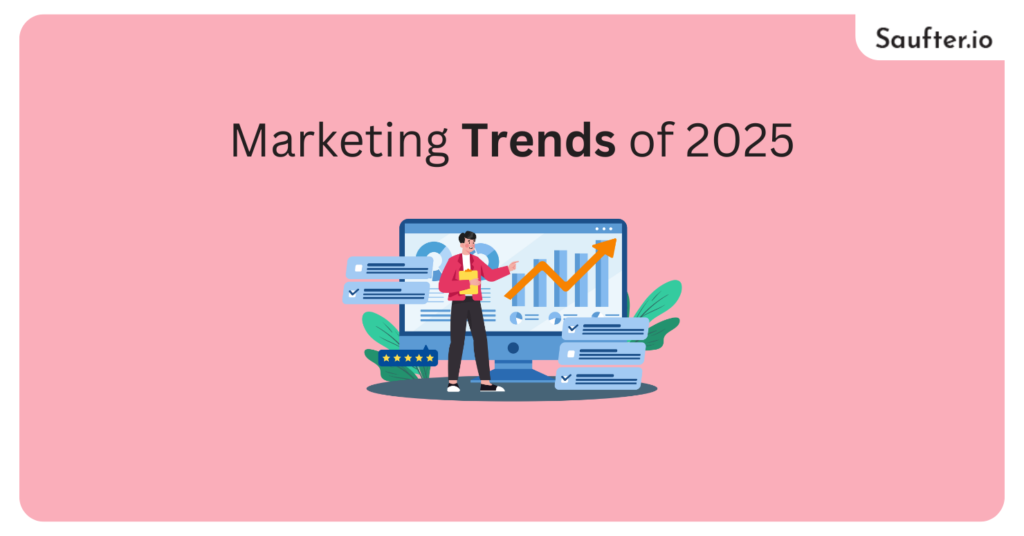Last Updated: November 2025
As we usher in the furure, it’s time to reflect on the transformative marketing trends 2025 and explore how these trends can inform and shape your strategies for the year ahead. From advancements in technology to shifts in consumer priorities, the lessons of marketing trends 2025 offer a roadmap for marketers aiming to stay ahead in an ever-evolving digital landscape.
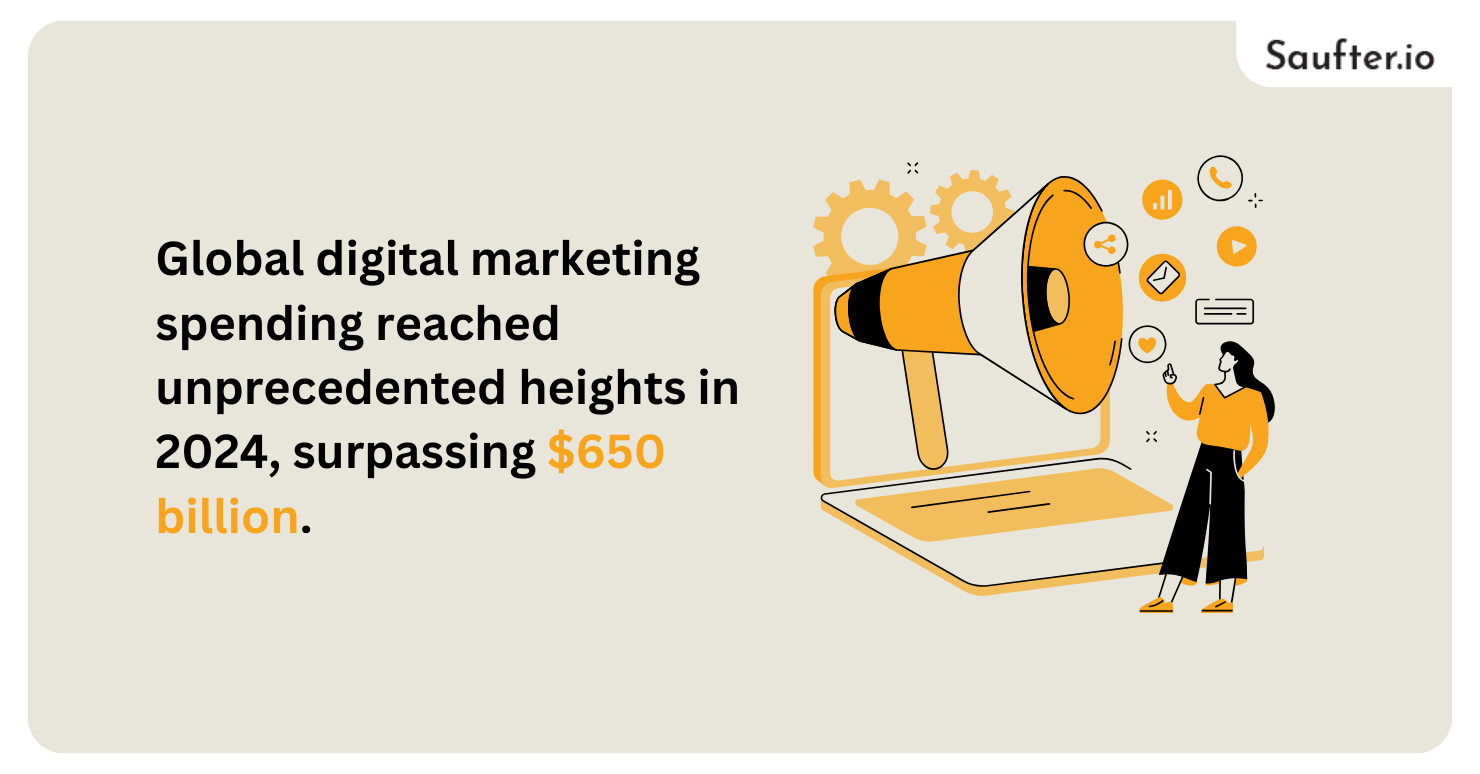
Global digital marketing spending reached unprecedented heights in 2024, surpassing $650 billion.
With AI, personalization, and ethical marketing leading the charge, the stage is set for a dynamic and innovative future. Here’s how to leverage marketing trends 2025 to craft a forward-thinking marketing strategy for the future.
Marketing Trends of 2025:
1. Web 3.0 and Decentralization: The Next Frontier
2024 solidified Web 3.0 as more than a buzzword, laying the groundwork for decentralized marketing approaches. In 2025, brands should:
- Capitalize on blockchain technology to ensure secure and transparent customer interactions.
- Leverage utility NFTs to drive brand loyalty and offer exclusive digital experiences.
- Adopt decentralized advertising platforms to reduce reliance on intermediaries and prioritize user privacy.
Embracing Web 3.0 helps brands foster trust and build lasting relationships. a crucial asset in 2025’s competitive market.
2. AI-Driven Personalization: Elevating Customer Experiences
AI-powered tools revolutionized marketing trends 2025, and their impact will only grow in the future. To stay ahead, marketers should:
- Invest in hyper-personalization tools to deliver tailored content and experiences.
- Utilize predictive analytics for real-time campaign adjustments.
- Enhance customer service with advanced AI chatbots.
AI-driven personalization ensures every customer interaction feels meaningful, which will be a defining factor in the future.
3. Short-Form Video: The Reigning Content King
Short-form videos dominated marketing trends 2025, thanks to platforms like TikTok and Instagram Reels. In future, this trend remains vital for capturing attention. Marketers should:
- Double down on storytelling and authenticity in bite-sized content.
- Use AI tools for video editing to produce high-quality, engaging videos efficiently.
- Experiment with interactive elements to drive engagement.
Short-form videos will continue to be the go-to format for connecting with diverse audiences.
4. First-Party Data: Privacy as a Competitive Advantage
With third-party cookies on the decline, first-party data strategies dominated marketing trends 2025. In future, marketers can stay ahead by:
- Building deeper relationships with customers through consented data collection.
- Enhancing loyalty programs to encourage data sharing.
- Using AI to analyze first-party data for better personalization.
Privacy-first marketing will be a cornerstone of successful strategies in the coming year.
5. Metaverse Expansion: Opportunities in Virtual Spaces
The metaverse evolved significantly in marketing trends 2025, offering new avenues for engagement. In future, brands can:
- Host immersive events and experiences in virtual worlds.
- Collaborate with metaverse influencers to reach niche audiences.
- Develop digital assets and collectibles for exclusive access.
The metaverse will remain a frontier for creative and meaningful brand interactions.
6. Influencer Marketing: Deeper Connections, Bigger Impact
Influencer marketing matured in marketing trends 2025, emphasizing authenticity and impact. To maximize this strategy in the future, brands should:
- Form long-term partnerships with influencers.
- Tap into micro and nano influencers for niche targeting.
- Leverage advanced analytics to measure ROI effectively.
Building genuine influencer relationships will drive deeper connections with audiences.
7. Omnichannel Integration: Delivering Seamless Experiences
Omnichannel strategies reached new heights in marketing trends 2025, and they’re essential for the future. To integrate successfully, marketers should:
- Ensure consistent messaging across all platforms.
- Use unified data systems to understand and predict customer journeys.
- Implement real-time synchronization tools for cohesive campaigns.
A well-executed omnichannel approach will set brands apart in a competitive marketplace.
8. Generative AI: Revolutionizing Content Creation
Generative AI reshaped content production in marketing trends 2025, enabling brands to create more with less. In the future, marketers should:
- Adopt generative tools for scalable content creation.
- Experiment with interactive formats like AI-powered quizzes and virtual assistants.
- Test multiple content variations for optimized results.
Generative AI will remain a powerful tool for staying creative and efficient.
Also Read- 2x ROI From Email Newsletters? Really?
How Will Web 3.0 Impact Business?
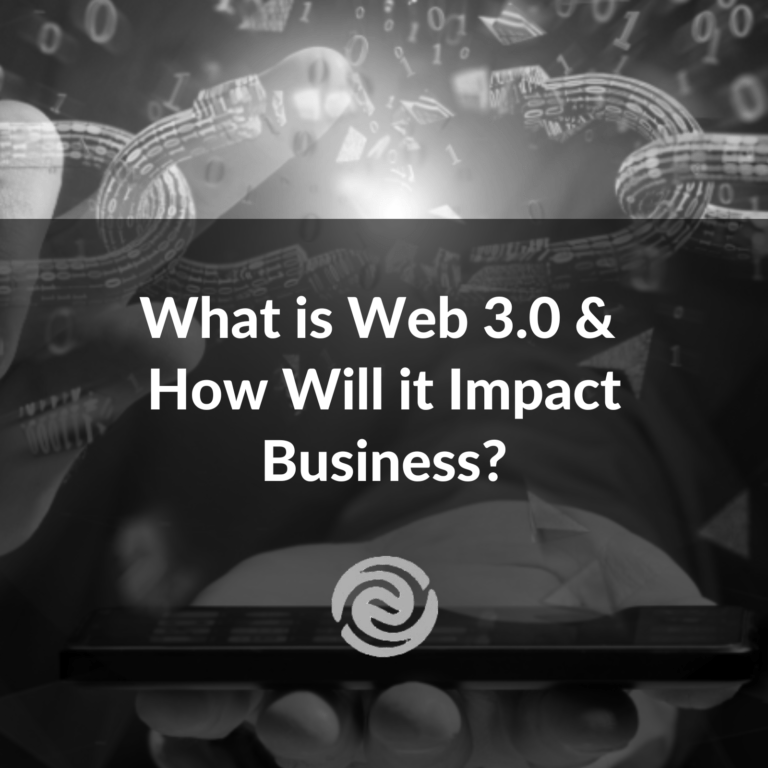
Web 3.0 has redefined the digital landscape, introducing profound changes that will shape the future of businesses. This next-generation web, built on the principles of decentralization, user control, and enhanced transparency, offers unprecedented opportunities for companies to innovate and expand.
By the end of 2025, the influence of Web 3.0 on business strategies will be evident across various sectors. Here’s how:
1. Enhanced Data Security
One of the most significant benefits of Web 3.0 is its reliance on blockchain technology. Blockchain ensures that transactions and data exchanges are immutable, transparent, and highly secure. For businesses, this means reduced risk of data breaches and increased consumer trust.
As customers become more privacy-conscious, organizations that prioritize secure interactions will stand out. By leveraging blockchain-based solutions, companies can not only safeguard sensitive information but also build a reputation as trustworthy entities in an increasingly competitive marketplace.
2. Decentralized Marketplaces
Web 3.0 enables the creation of decentralized marketplaces, where businesses can operate directly with customers, eliminating intermediaries. This reduces transaction costs, improves efficiency, and increases transparency in processes such as supply chain management, financial services, and e-commerce. For instance, decentralized platforms like OpenSea and Rarible allow creators to sell digital assets directly to buyers, keeping more profits and fostering direct relationships with their audience.
3. Customer Empowerment
Web 3.0 places control in the hands of users, allowing them to own, manage, and monetize their data. This paradigm shift empowers customers to engage with brands on their terms, leading to more personalized and meaningful interactions. Businesses can leverage this dynamic by building solutions that respect user preferences and offering tailored products and services.
4. New Revenue Streams
The emergence of utility NFTs (non-fungible tokens) and tokenized assets opens up exciting avenues for businesses. Companies can use NFTs for customer engagement, loyalty programs, and exclusive offerings. For example, brands might issue NFTs that grant holders access to special perks, fostering a sense of exclusivity and strengthening customer relationships.
Additionally, tokenized real-world assets such as real estate or intellectual property can enable fractional ownership, providing businesses with innovative funding mechanisms and new monetization strategies.
5. Global Accessibility
Decentralized platforms powered by Web 3.0 can transcend geographical barriers, enabling businesses to reach underserved and remote markets. With fewer regulatory and operational hurdles, companies can expand their customer base and create inclusive ecosystems. This global accessibility fosters innovation by providing equal opportunities for entrepreneurs and consumers worldwide.
6. The Competitive Edge
As Web 3.0 continues to evolve, companies that integrate its principles into their operations will gain a significant competitive advantage. Embracing decentralization, blockchain, and user empowerment will allow businesses to foster trust, enhance efficiency, and explore novel growth opportunities. By staying ahead of the curve, forward-thinking organizations can establish themselves as leaders in the rapidly transforming digital economy.
Emerging Themes in Marketing
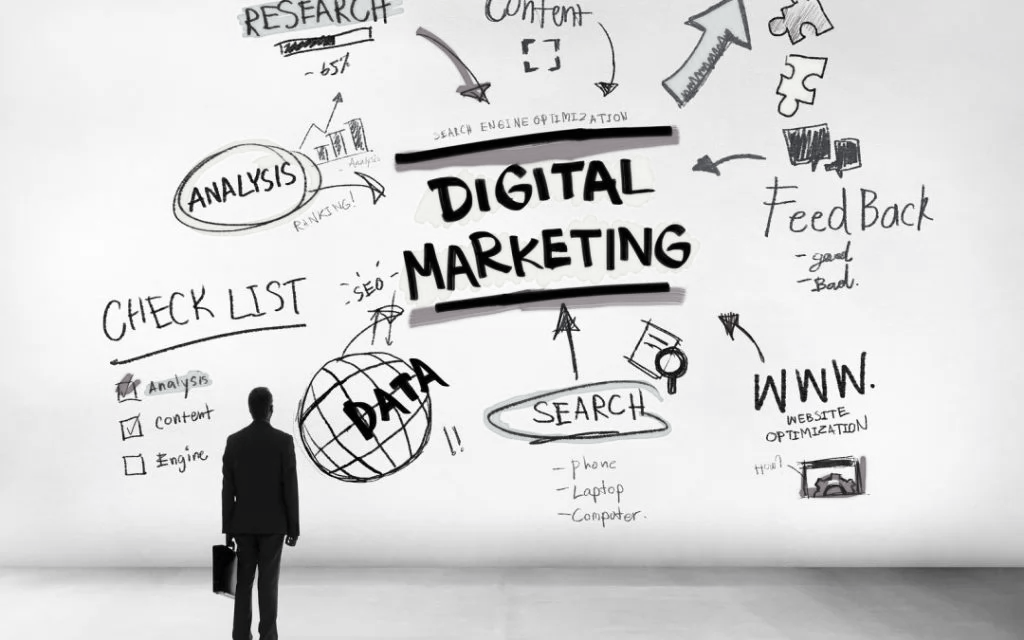
As we look in to the future, several future trends in marketing are beginning to define the industry landscape. Marketers need to pay attention to these emerging themes:
1. Hyper-Automation
Artificial intelligence (AI) and machine learning (ML) are revolutionizing marketing operations. These technologies enable hyper-automation by streamlining repetitive tasks, optimizing ad targeting, and analyzing data in real-time. As a result, marketers can focus more on strategy, creativity, and storytelling.
2. Experience-Driven Commerce
The shift from transactional selling to creating memorable, experience-driven interactions is becoming a cornerstone of modern marketing. Brands are increasingly focusing on fostering emotional connections with their audiences through personalized and immersive experiences. From tailored loyalty programs to engaging brand narratives, experience-driven commerce helps build long-term relationships and brand loyalty.
3. Personalization at Scale
Advancements in data analytics and AI-powered insights are enabling brands to deliver hyper-personalized experiences to vast audiences. Marketers can now tailor messages, product recommendations, and customer journeys based on individual preferences, behaviors, and past interactions. Personalization not only improves customer satisfaction but also drives higher conversion rates and engagement.
4. Sustainability Leadership
As consumer awareness of environmental and social issues grows, brands with strong commitments to ethical practices and sustainability will gain a competitive edge. Transparency, eco-friendly initiatives, and socially responsible campaigns will become key differentiators. Customers will favor businesses that align with their values, making sustainability leadership an essential component of marketing strategies.
5. Mixed Reality Campaigns
With advancements in augmented reality (AR) and virtual reality (VR), brands can craft immersive campaigns that engage audiences like never before. Mixed reality experiences provide unique opportunities for storytelling, allowing customers to interact with products and services in innovative ways. These campaigns enhance brand perception and create memorable moments that drive engagement.
In conclusion, staying ahead of these future trends in marketing will require marketers to be proactive, innovative, and adaptable.
Conclusion
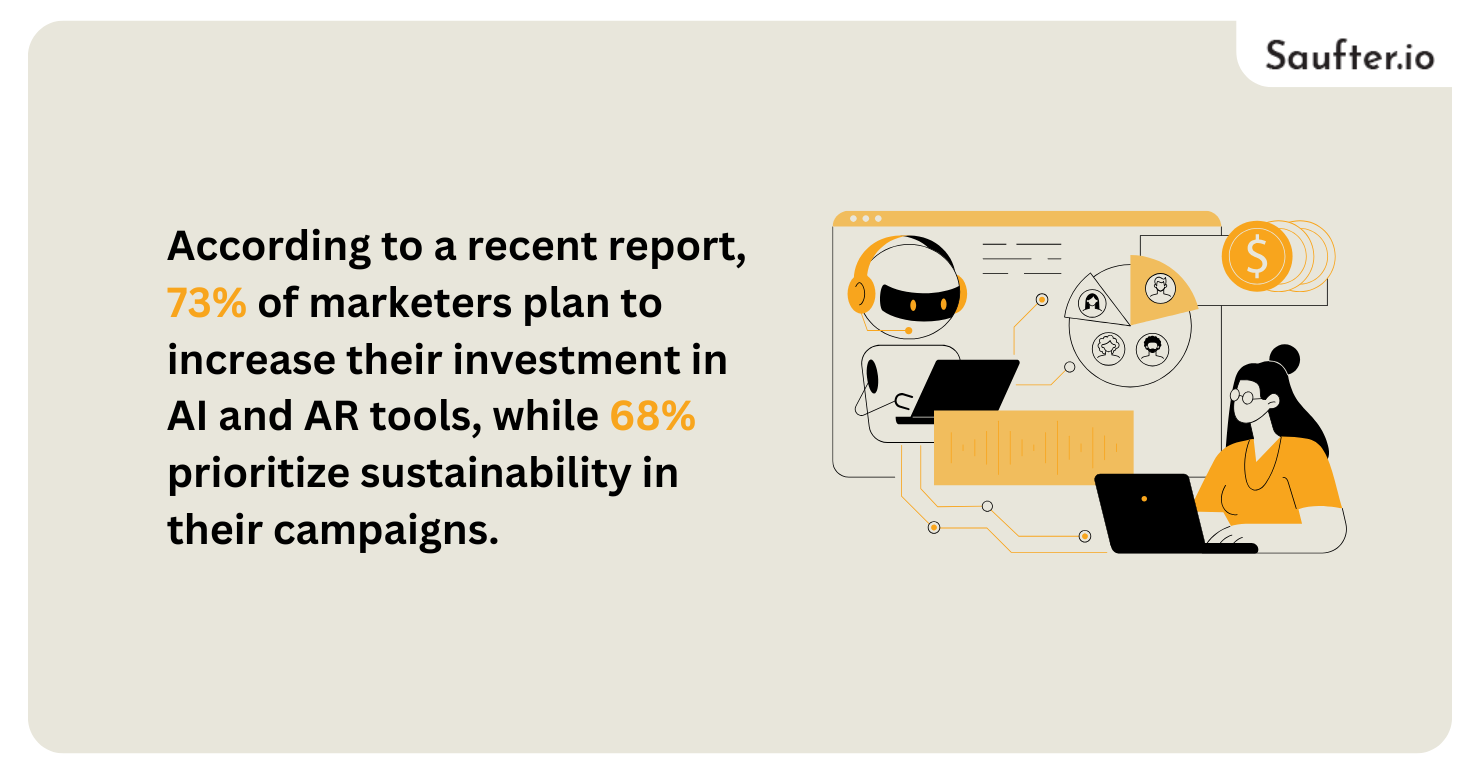
The biggest marketing trends 2025 have laid the foundation for a transformative future. By embracing innovations like Web 3.0, AI-driven personalization, and sustainability, brands can position themselves as leaders in the ever-evolving digital landscape.
According to a recent report, 73% of marketers plan to increase their investment in AI and AR tools, while 68% prioritize sustainability in their campaigns. These statistics underscore the importance of embracing these trends to ensure relevance and success in the dynamic marketing landscape of the future.
The key to success lies in adaptability, creativity, and a customer-first mindset. Let the future be the future you harness these trends to redefine your marketing strategy and achieve unparalleled growth.
